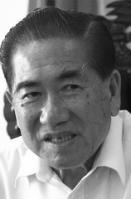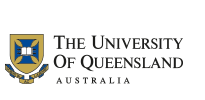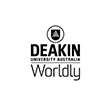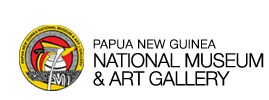Henry Chow

Sir Henry Chow was a leading figure in local government in East New Britain and a senior executive of the People's Progress Party, commencing in the 1960s. He built a business group which today employs 1200 personnel in PNG. Sir Henry speaks about the role and history of the Chinese community in PNG, and recalls the evolution of local and national politics in the independence era, including his own involvement in the formation of national coalition governments in 1972 and 1977.
| Time | Summary | Keywords |
|---|---|---|
| 00:00:00 |
Henry Chow is welcomed to the interview. |
|
| 00:01:18 |
Henry Chow recalls how his family was recruited from the Portuguese colony in Macau for the German territory in the north-east of PNG. |
Chinese, German, Macau, Portugal |
| 00:02:39 |
Henry Chow relates how 300 young men were recruited from the Sze Yap Clan in Guangdong Province to go to Rabaul in the 1870s, including his great grandfather who was recruited to work for a German officer in Kokopo. He relates how his grandfather at 19 years set out to find his granduncle in 1895, travelling to Macau and Singapore where he worked in a small boat yard waiting for seven months while waiting for a boat to go to Kokopo. |
boat building, China, Chinese diaspora, Guangdong Province, Kokopo, Macau, Singapore, Sze Yap Clan |
| 00:08:20 |
Henry Chow relates how his grandfather in 1941 moved the family away from Rabaul to a plantation in New Ireland, from where they witnessed the Japanese bombing of Rabaul. |
Australian army, Japanese, New Ireland, Rabaul, World War II |
| 00:10:32 |
Henry Chow recalls the Australian soldiers during World War II, and the naming of 2/22nd Street after the Australian battalion. |
Australian army, World War II |
| 00:11:45 |
Henry Chow recalls how his grandfather was granted 100 hectares of land by the Germans on New Ireland which the family developed into a coconut and copra plantation. |
copra, New Ireland, plantation |
| 00:14:07 |
Henry Chow relates that his family had a trade store in Rabaul, and how his grandfather built a boat with a Japanese boat builder to run copra from the plantation to Rabaul. |
boat building, copra, Japanese, Rabaul |
| 00:17:06 |
Henry Chow discusses the impact of the defeat of the Germans in World War I on Kokopo and the Chinese. |
Kokopo, World War I |
| 00:18:45 |
Henry Chow discusses his mother's education by German nuns at the Catholic mission in Kokopo and how his grandfather had converted to Catholicism and started the building of the Chinese Catholic School in Rabaul. He discusses his own education prior to World War II. |
Catholic church, World War II |
| 00:20:38 |
Henry Chow describes seeing the Japanese bomb Rabaul in World War II and the effect of the Japanese in Rabaul during the war. |
Watom Island |
| 00:24:29 |
Henry Chow discusses how his schooling was interupted by World War II, and the placement of Chinese in concentration camps. He describes how all citizens and their animals were registered by the Japanese and males required to report to Namatanai every month. |
Japanese, Namatanai, World War II |
| 00:29:55 |
Henry Chow discusses the progress of World War II including the Battle of Buna, the reoccupation of Manus and the battles on Honiara. He describes the air battles and dog fights between Japanese and American pilots over Rabaul. |
Battle of Buna, Honiara, Pacific War |
| 00:33:40 |
Henry Chow recalls the end of World War II, the liberation of the concentration camp, and the provision of food by the Australian Red Cross. |
Red Cross, World War II |
| 00:34:52 |
Henry Chow describes his relocation to Namatanai after the war, the building of houses and the schooling of the Chinese prior to their transfer back to Rabaul. He recalls recommencing his basic schooling at the Administration School. |
Namatanai, Rabaul, school |
| 00:36:58 |
Henry Chow describes how his father re-established his trade store and plantation and purchased a boat and began to trade copra. He describes how he and his older brother were sent to school in Australia, flying on a DC3 via Finch Hatton, Lae, Port Moresby, Townsville and Brisbane before arriving in Sydney. He describes spending 1948 at De La Salle College before being transferred the next year to St Joseph's College. |
copra, school, Sydney, Australia |
| 00:39:54 |
Henry Chow describes how prominent Chinese families in Sydney supported the brothers especially during school holidays, as the trip back to Rabaul could take three weeks by boat. He relates that in ten years in Australia he only returned home three times. |
Chinese |
| 00:41:53 |
Henry Chow states that after finishing high school he went straight to Brisbane to take up an apprenticeship at the Crowley shipyards in Bulimba. He relates how he moved into a hostel in Bulimba, and how he excelled by learning all he could from the shipyard owner. |
boat building, Brisbane, Australia |
| 00:50:17 |
Henry Chow relates how on returning to PNG he took advantage of Chinese connections and took on the position of qualified boat builder to run a slipway in Rabaul where he taught boat building. |
boat building, Chinese |
| 00:52:39 |
Henry Chow relates how his well known reputation as a boat builder led to his nomination to join the Rabaul Chamber of Commerce and becoming Vice-President. He describes how he and his wife fundraised for charities, raising money for the Cathedral in Rabaul. He relates how he was nominated for the Rabaul Town Council, later becoming chair of the combined council of East New Britain from 1967-73. |
Catholic church, Chamber of Commerce, East New Britain Council, Rabaul Town Council |
| 00:59:18 |
Henry Chow describes his initial reactions to the idea of independence and the Chinese fear of the implications of independence. |
independence, Julius Chan, Tolais |
| 01:01:34 |
Henry Chow discusses his relationship with Julius Chan, going back to his Brisbane days, and their involvement in shipyards. He discusses discrimination against Chinese, their status as second class citizens and his determination to gain respect. |
Chinese, Julius Chan, Kone Club |
| 01:05:04 |
Henry Chow discusses his involvement with political parties and movements and his role with Julius Chan in the PPP, the business party. |
Julius Chan, Matanguan, People's Progress Party |
| 01:07:32 |
Henry Chow discusses the first election in 1972, his role with independent Matthias Toliman and his strategy to gather votes in remote villages |
1972 election, Matthias Toliman, Watom Island |
| 01:11:07 |
Henry Chow describes the negotiations after the 1972 election to form government and his rejection of the United Party due to the fear of anarchy. He briefly discusses his relationship with other political figures. |
1972 election, Dennis Buchanan, Julius Chan, Matanguan, Pangu Party, self government, Tony Siaguru, United Party |
| 01:17:54 |
Henry Chow describes self government as a foregone conclusion at the time and the steps necessary to prepare the constitution. |
Constitution, Constitutional Planning Committee |
| 01:20:06 |
Henry Chow relates how many Chinese left due to fear of violence, but that his own involvement in politics gave him confidence in the continuing bureaucracy. |
Africa, Chinese, violence |
| 01:21:37 |
Henry Chow discusses Julius Chan's strategy to buy out foreigners who were leaving and the training program for indigenous PNGs. |
Julius Chan |
| 01:23:09 |
Henry Chow describes the extent of his business interests in 1975, and his business association with Julius Chan. |
boat building, copra, Julius Chan |
| 01:26:25 |
Henry Chow relates that after 1982 his business grew to include the Lae Biscuit company and his growing success with the removal of preferences. |
Lae Biscuit |
| 01:28:58 |
Henry Chow describes the expansion of his ship building business to Hong Kong. |
boat building, Hong Kong, Rabaul |
| 01:30:59 |
Henry Chow quantifies the growth in his business interests over 40 years. |
|
| 01:33:33 |
Henry Chow describes his part in the negotiations to form government after the 1972 election. |
1972 election, Julius Chan, Pangu Party, United Party |
| 01:37:36 |
Henry Chow is thanked for his time and contribution. |
|
| 01:38:00 |
Interview ends. |
Biography

Henry Chow
Sir Henry Chow Kt OBE was born in 1933 in Rabaul, East New Britain province. His forebears were Chinese share crop farmers who were recruited by the German New Guinea colonial government to work for the administration in Rabaul in the 1890s. Sir Henry grew up in Rabaul and New Ireland during the wartime period of Japanese occupation. He was educated in PNG and in Australia, and was the first from PNG after World War II to serve an apprenticeship as a boat builder / designer in Australia. Returning to Rabaul in 1958, he started his first business as a boat builder, Toboi Shipping Company.
Today Sir Henry is the Chairman and CEO of the Lae Biscuits Group of companies, which is involved in many ventures including the manufacture of biscuits, meat products and small goods, as well as real estate, saw milling and shipping services. The family business employs 1200 staff.
Sir Henry has been involved in politics since the mid-1960s. He became a member of the Rabaul Town Council in 1964, and was elected Vice President of the Rabaul Chamber of Commerce in 1967. He went on to become the Chairman of the Rabaul Town Council from 1970 to 1974.
Henry Chow was a senior official of the People's Progress Party for 17 years from 1967 to 1984, supporting PPP leader Julius Chan as party organiser and coordinator for the national elections in 1972, 1977 and 1984. He was centrally involved in the successful formation of the national coalition governments between the PPP and PANGU parties in 1972 and 1977.
Sir Henry has been, and remains, an active supporter of many philanthropic causes in PNG.
Copyright © Papua New Guinea National Museum & Art Gallery, 2025
The copyright holder of this material grants users permission to access the material on this website for the following purposes only: research and study, education, other non-commercial and non-public uses.




